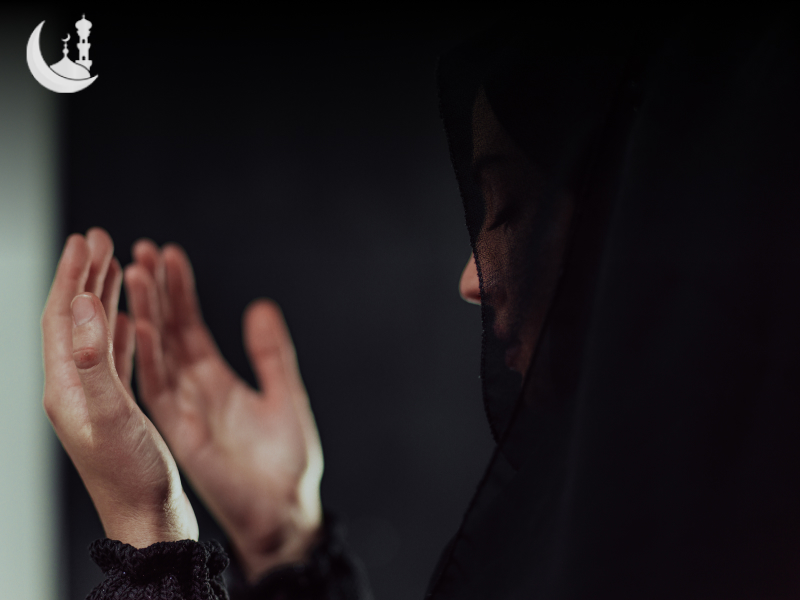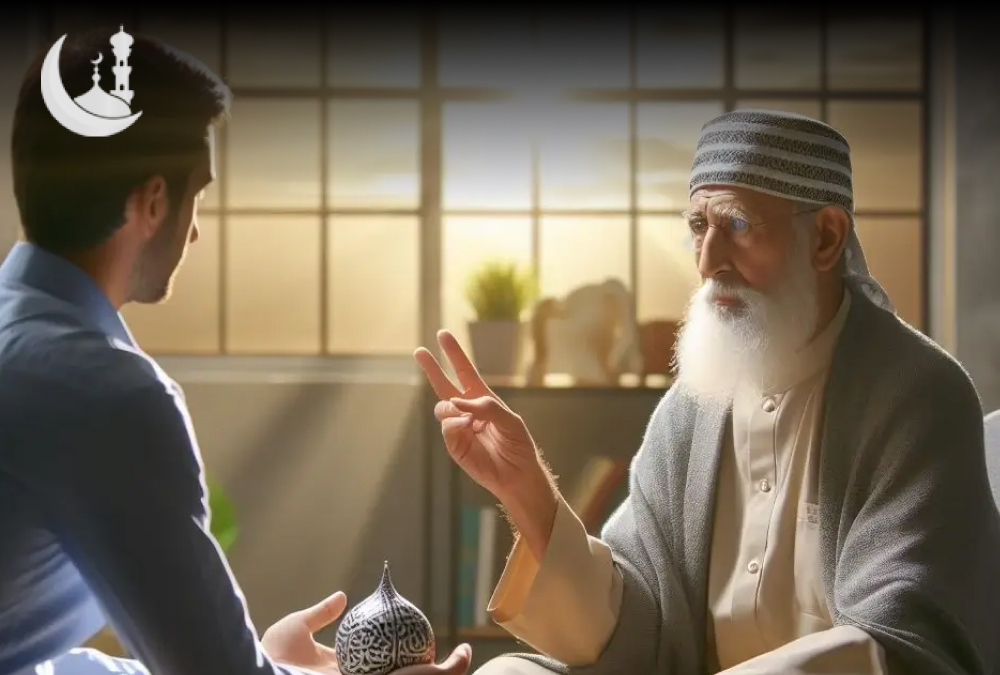Endurance defines the possibility of Muslims to stand tough moments scientifically called resilience and resilience defines the possibility of any human being to pass through the various challenges of life scientifically called mental health. In terms of mental health care, there is only one perspective a Muslim doctor can have. A place where people can be treated for various mental health issues is constructed under Islamic architecture and utilize effective treatments. This blog will discuss why we must have a Muslim doctor attending to cases of mental health.
Take care of yourself and get to know other people.
Therefore Muslims themselves have their mental health problems just like the rest of the population. Because mental illness is still a taboo in some cultures, coupled with Islamophobia, and finding ways to embrace therapy with Islamic beliefs can deter people from seeking help.
A Muslim therapist may be able to accept different cultures because he or she understands so much about the culture and faith of the Islamic people.
The basic legislative steps for treatment are trust and effective communication between the therapist and the patient. Muslim counseling services in Georgia offer you Islamic teachings with therapy methods. They are approaching the needs of Muslim patients and families with culturally sensitive services.
Introduction of Faith-based principles
Muslim therapists’ ability to incorporate Islamic principles in the therapy process is one of the plus as they embark on their duty.
Part of the Wisdom of the Qur’an
Self-help guides drawn from Quranic sources that give a teaching on how to handle conditions such as anxiety, sadness, or rage can be further used by therapists. For example, some verses that say something about patience in chapter al Baqarah verse 153, it will provide comfort if the times are difficult.

Islamic Pattern Mindfulness
There are many forms of mindfulness which are found in Islamic culture. In such a manner, the therapists, who apply such techniques as thankfulness (Shukr) and thoughtful contemplation (Tadabbur) can assist the clients in enhancing the phenomena of experiencing pleasant feelings in the present time.
Fortifying Spiritual Bases
Clients can learn how their Islam shaped them or did not shape them, with the assistance of a Muslim therapist. It may contain information about salah or prayer as worship that one can seek Allah’s help and comfort through prayer.
Symbiosis of Faith with Scientific Practices of Psychotherapy
As is important to remember, that Muslim therapists are professional, board-certified mental health workers who completed their education and training, such as ACT and CBT.
Their work is to incorporate each of them with the teaching of Islam to be in a position to come up with a treatment plan that suits every patient.
Respecting Client Autonomy
Muslim counselors give their clients’ liberty priority. Since faith is a personal experience, they will collaborate with clients to decide how much faith should be incorporated into their therapy.
Focus on Evidence-Based Practices
The foundation of the therapeutic approach is still based on tried-and-true techniques that are successful in the treatment of mental health issues.
They come up with a Mental Health Education.
It is therefore very important for Muslim therapists to be in place to educate the Muslim population about mental health. They could do this through seminars, talk shows, or going around the community, they may help reduce myths and enable people to seek help whenever they are stuck.
Why it helps to see a Muslim therapist
Despite this, there are many advantages of going to a Muslim doctor.
Lowering of Stigma
Thus, knowledge of and compliance with Islamic principles may protect those with mental disorders from prejudice that such individuals experience in the majority of Islamic states.

Higher level of comfort
It might be easier to talk about personal problems with someone who shares your religion and culture.
Bringing together mental health and religion
Muslim therapists help their clients feel better by giving them information on how to make mental health treatments and Islam work together.
Not part of the Muslim community
Muslim therapists are very smart and helpful, and not just in their own groups. They are also helpful to people from other places. They can combine cultural competence and faith-sensitive ways, which helps clients from a wide range of backgrounds.
Better understanding between people
Therapists who work with a lot of different groups might find the way a Muslim therapist handles cultural and religion issues in their work helpful.
Builders of Bridges: Muslim therapists can help bring together mental health professionals and faith groups to work together and provide more help to everyone who needs it.
What’s Next for Muslim Therapists
The fact that there are more and more Muslim doctors is a good sign for mental health care. As more Muslims learn about mental health issues, there will likely be a greater need for these workers.
Doing more research
It is important to do more study on how well using Islamic principles in mental health treatment works.
Coaching and training
To increase the number of therapists, it is important to create training programs and mentorship options just for people who want to become therapists.
Working with the Community
It is very important to reach out to Muslim groups and teach them about the role of Muslim therapists. This will help remove the stigma surrounding mental health.
Markazul Arshad wa Tawjeeh is an Islamic group that works to support and improve Muslim families. When it comes to Islamic counseling, the Centre doesn’t push any particular schools of thought. Their main goals are to do what Allah wants, make families stronger, and bring Muslim society together.
| Heading | Content |
|---|
| Understanding Mental Health in Islam | In Islam, mental health is seen as an essential part of overall well-being. It is closely linked to a person’s faith, spiritual endurance, and resilience. Islam provides comprehensive guidance on coping with life’s challenges, integrating mental and spiritual care. |
| The Role of Resilience in Mental Health | Resilience, the ability to endure and overcome hardships, is emphasized in Islamic teachings. It not only helps Muslims navigate mental health challenges but also strengthens their faith by teaching reliance on Allah during tough times. |
| Why a Muslim Therapist is Essential | A Muslim therapist understands both the clinical aspects of mental health and the spiritual needs of their patients. They can provide care that is aligned with Islamic values, offering patients a holistic approach to healing that integrates faith and therapy. |
| Islamic Architecture in Mental Health Care | Islamic mental health facilities are designed with a calming and spiritual atmosphere that promotes healing. Incorporating Islamic architecture and values into these spaces helps patients feel more connected to their faith, enhancing their recovery process. |
| Treatments Aligned with Islamic Teachings | Muslim therapists use treatments that respect Islamic principles, such as maintaining dignity, privacy, and modesty. Combining psychological methods with spiritual practices like dua and Quranic recitations ensures patients receive comprehensive care. |
| The Need for Muslim Doctors in Mental Health | Having Muslim doctors in mental health care is crucial as they can understand the unique cultural and religious needs of Muslim patients. They are better equipped to offer advice and solutions that are both scientifically sound and spiritually enriching. |
| Conclusion | Muslim therapists play a vital role in mental health care by offering treatments that consider both psychological and spiritual well-being. Their understanding of Islamic values ensures that patients receive care that resonates with their faith and cultural context. |
Final Thoughts
Muslim therapists plays a crucial role of accommodating mental health service needs within and also outside the Muslim community. They can help people to recover and develop as they contribute to the connection of religion to science.
Muslim therapists are enhancing the probability of both the uptake and effectiveness of mental health services by growing mental health literacy, by promoting culturally appropriate practice, and by practicing in accordance with Islamic tradition and contemporary research.
Read Also: Dua to Be Made Before Nikkah: A Spiritual Preparation
FAQs
Q1) Does a Muslim counselor treat only Muslim patients?
Muslim therapists may be useful to all customers regardless of the color of their skin. It shows that their possible advantages in sensitivity to spirit and culture can enhance a plethora of client populations’ treatment.
They also help to close a gap that exists between religious groups and mental health practitioners.
Q2) Why Therapy is important?
Anyone in desperate need of a fresh and non-critical outlook should go for therapy. Individual friendship is more comfortable in therapy since people can say things that perhaps would not open to people they know intimately.
Counseling offers suggestions and another look at a difficult situation. However, it is necessary to notice that counseling should not be considered as an equivalent of spiritual direction.
Q3) How can a Muslim counselor make his patients feel comfortable and secure whenever they visit him/her?
They have respect and understanding in respect of the basic Islamic belief and also the culture. They are very clear on the cultural issues and provide a place that has no stigma. They consider client self-determination and compliance to measure the level of religious enactment within treatment.




